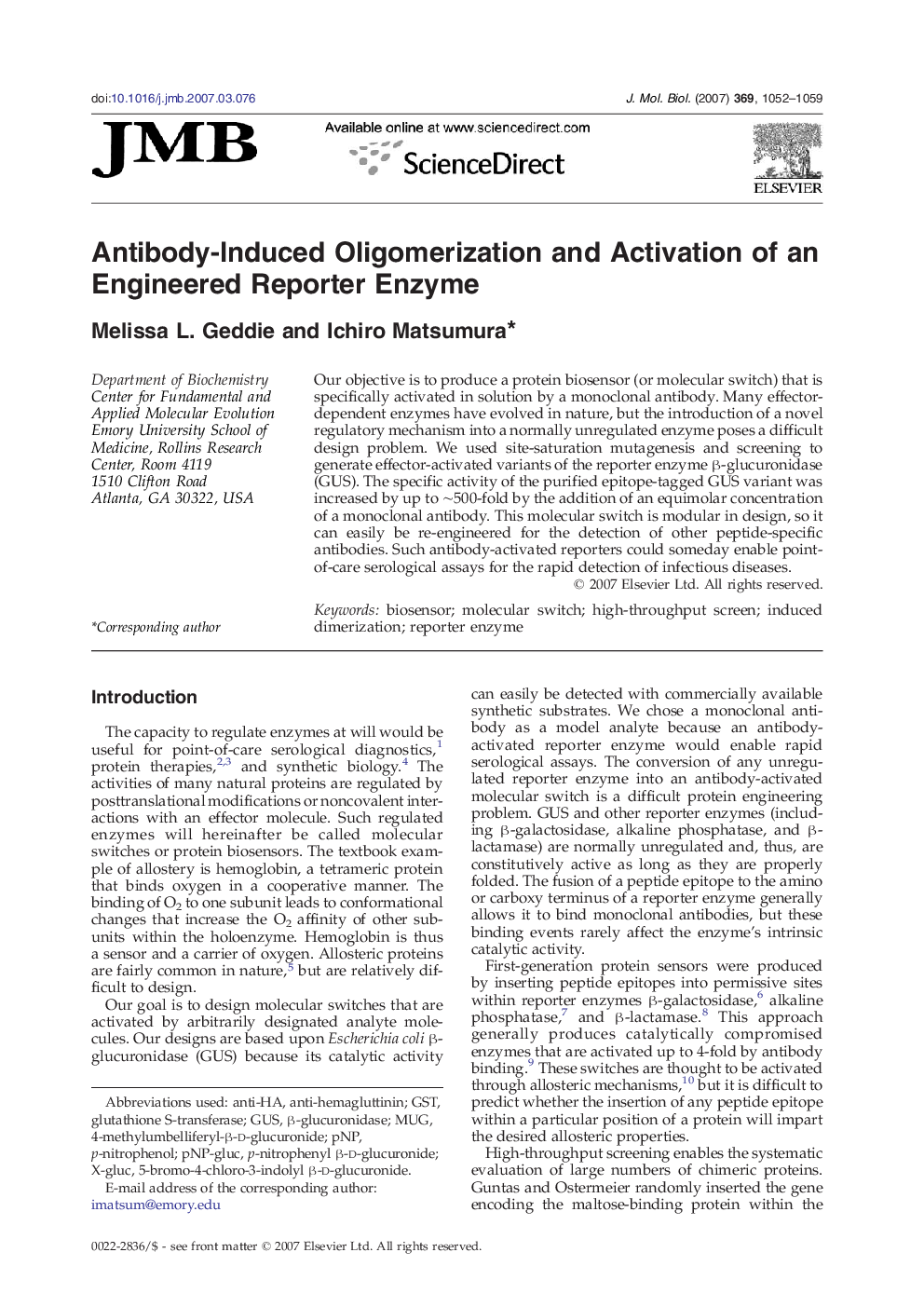| Article ID | Journal | Published Year | Pages | File Type |
|---|---|---|---|---|
| 2188448 | Journal of Molecular Biology | 2007 | 8 Pages |
Our objective is to produce a protein biosensor (or molecular switch) that is specifically activated in solution by a monoclonal antibody. Many effector-dependent enzymes have evolved in nature, but the introduction of a novel regulatory mechanism into a normally unregulated enzyme poses a difficult design problem. We used site-saturation mutagenesis and screening to generate effector-activated variants of the reporter enzyme β-glucuronidase (GUS). The specific activity of the purified epitope-tagged GUS variant was increased by up to ∼500-fold by the addition of an equimolar concentration of a monoclonal antibody. This molecular switch is modular in design, so it can easily be re-engineered for the detection of other peptide-specific antibodies. Such antibody-activated reporters could someday enable point-of-care serological assays for the rapid detection of infectious diseases.
